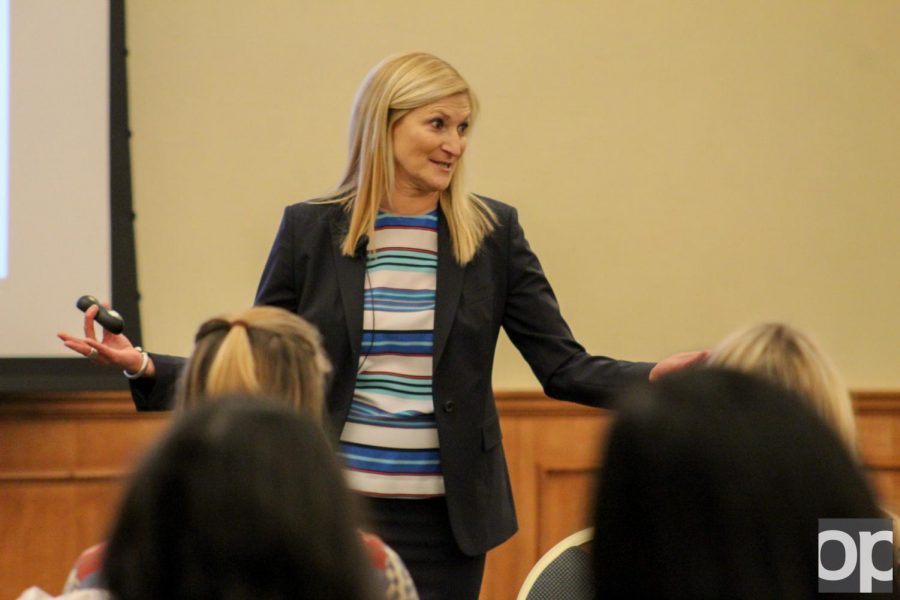Dr. Terri Orbuch reveals the secrets to happy relationships in the workplace and beyond
Dr. Terri Orbuch, a professor of sociology, human sexuality and interpersonal relationships at Oakland University, has studied and followed 373 married couples for almost three decades through a combination of scientific studies and psychological deduction. Her study is funded by the National Institute of Health.
On Wednesday, April 4, “The Love Doctor” revealed what she discovered.
Orbuch is an author, journalist and has appeared on USA Today, ESPN, the Katie Couric Show, CNN and more.
“Happy relationships shouldn’t be hard work,” Orbuch said. “That’s one of the upbeat findings from my landmark study of marriage and relationships in general. If you’re in a happy partnership, married or not, you can keep it that way or make it even better by introducing a few new behaviors and small changes into the relationship.”
Orbuch’s study of 373 married couples is the only study of its kind.
“When I asked these couples, what’s most important to you? The number one answer people gave is having a relationship,” Orbuch said.
While many relationship experts say you need to focus on fixing what’s wrong, Orbuch’s research shows that adding positive behaviors to the relationship has a much greater impact on couples’ happiness.
“Do random acts of kindness often,” Orbuch said. “Small gestures that say ‘I’m thinking of you’ are essential to keep the relationship bond strong.”
Orbuch offers strategies to promote happiness, excitement and passion in a relationship. These strategies are not only for married couples but for couples at any stage of a relationship.
“In relationships, you need to have realistic expectations,” Orbuch said. “Having unrealistic expectations leads to frustration, and my study found that frustration is the main reason relationships fail.”
Doing small things, often, providing affirmation for the other person in the relationship, and in turn, allows them to feel appreciated.
“Affective affirmation consists of compliments, help, support and encouragement,” Orbuch said.
The happy couples from her long-term study of marriage all said good communication skills were what kept them together and thriving.
“When striving for good communication, this means not only asking your partner what he or she needs, but telling your partner what you need,” Orbuch said. “It means checking in regularly to find out what stressors are rearing their ugly head in your partner’s life, and it means learning how to fight fair.”
Orbuch says that the best way to make your relationship better is to add positive elements to your relationships.
“That positive energy makes us feel good and motivates us to keep going in that direction,” Orbuch said.
Willie Tuggle, learning and organization development manager at OU, believes that holding events like this on campus will benefit students and staff who are looking to develop their personal relationships.
“My office is concerned with the entire make up of a person which includes their well-being,” Tuggle said. “An event like this helps to offer the community insight into their personal development which in turns add value to the impact they have at OU. When our staff have the tools and resources to enhance their development it enhances their ability to serve the OU community.”
Relationships are vital to both psychological and physical health.
“Those who are in a happy relationship tend to be healthier, which is critical for a balanced life,” Orbuch said.










